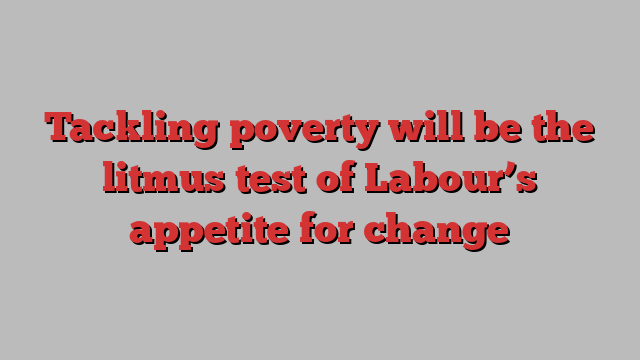
Stay informed with free updates
Simply sign up to the Social affairs myFT Digest — delivered directly to your inbox.
The writer is a political strategist at BCW communications and former political secretary to Tony Blair
Less than three weeks into his term as Prime Minister, Sir Keir Starmer has been hit by a rebellion. It was only symbolic — a vote on an amendment to the King’s Speech. And it was small — only seven of Labour’s 412 MPs rebelled. But it is in danger of becoming emblematic of the new government. A Labour source briefed at the weekend that this vote was a “virility test” for the party. Loose words that revealed a dangerous delight in opposing a Scottish National party proposal that would alleviate child poverty — an avowed commitment of Starmer and his Cabinet.
The hardest question in politics is the shortest: “Why?” That’s the question New Labour struggled with in 1997 when it cut lone parent benefit. Did they have to do it because of their own fiscal rules, or did they want to do it because they wanted lone parents to be in work?
Looking back, it is hard to see any benefit for Tony Blair and Gordon Brown in sticking to the tight budgets inherited from John Major’s government — but the damage done was clear. As then Liberal Democrat leader Paddy Ashdown said at the time, people were “simply bewildered” by a Labour government doing this.
History may not repeat itself, but it definitely rhymes. Today, as in 1997, members of Labour’s Cabinet struggle to explain why they will not abolish the Tory “two-child limit” in welfare payments which has pushed so many children into poverty. Is it because they can’t afford it, or because Labour wants “a strategy [that] covers all the bases to drive down child poverty,” as Starmer has said. The problem with that line is that since the most obvious cause of poverty is a lack of money, £3bn would clearly make an immediate difference.
Number 10’s announcement last week of a Child Poverty Unit was welcome, as was the broader child poverty strategy. But it is unlikely that ministers, advisers and experts will find any reason to disagree with the 2014 coalition government review of evidence of drivers of child poverty which reported that the “main factor is lack of sufficient income from parental employment”. A review looks like a delaying tactic.
The urgency is the issue. Labour campaigned as “change” yet is in danger of governing as “review”. It is an iron law of politics that you should do swiftly what you will eventually be forced to do. Delay means that you lose the credit for your actions and cede the benefits of your change to your most vocal critics — whether the left of the Labour party or opposition parties.
There’s a strategic political point at the heart of Labour’s desire to have a comprehensive anti-poverty strategy. It is partly that changes in other policy areas will make a difference. From breakfast clubs to devolving employment services to mayors to making work pay through changing employment law, Labour has the bones of a strategy. But mainly it’s the lesson of the successes and failures of Blair and Brown’s social security policies.
New Labour achieved substantial falls in both child poverty and pensioner poverty. During the recent election campaign, Labour pledged to keep the “triple lock” on pensions introduced by the coalition government. However, there has been no matching consensus on child poverty — and the electoral reality is that the Conservative government paid no political price for their policies that saw 700,000 more children pushed into poverty.
The question of how Labour makes lasting reductions in child poverty is worthy of deep thinking. So too is the parallel question of how to make that progress irreversible — how can making children poorer become a “third rail” issue, one that no politician dares to touch because they know it will be fatal to their career?
As the saying goes, you only get one chance to make a first impression. The danger is that, at best Labour looks as though it is delaying tackling this issue when there is a solution that is simple, obvious, and effective. At worst it appears that the party relishes this position as evidence of their ability to make “hard choices”. Blair and Brown regretted the image of callousness earned by the cut to lone parent benefit, so they spent considerable sums in the following years on support for children to make up for it — when the original saving was only £55mn in the first year.
Labour’s fiscal rules were forged by Rachel Reeves, the chancellor, to strengthen the brand in an area of weakness — fiscal credibility. But, to paraphrase Neil Kinnock, they shouldn’t become “pickled into a rigid dogma, outdated, misplaced, irrelevant to real needs.” They should not be allowed to weaken the government’s fundamental brand. To govern is to choose. To govern is to change.